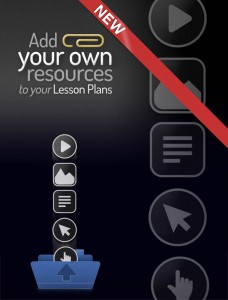Differentiated learning, personalized learning, multiple intelligences, multi-sensory education…the list goes on. We have a long list of terms to describe what teachers do to address the many varying needs they encounter in the classroom. Each of the above terms has a slightly different approach, a strategy for engagement, and a way to help students achieve and succeed. No matter which one an educator may choose, they all share a common goal: empowering a diverse community of learners to succeed.
Relationship building is key
However, building such a community requires educators to go beyond curricular outcomes, learning objectives, assessments, lesson plans, textbooks, and any other artifact with which we fill our classrooms. For that, the implementation of relationship building activities like reflection journals, group discussions on student driven topics, and what most people call ice-breakers are a great way to learn as much as possible about students. Providing differentiated learning opportunities can and will help create such a community, but it requires the prioritization of relationship building. In a community college setting, students interact with their professors about three hours a week for sixteen weeks. Because of the time restraints, prioritizing the relationship between all members of the community of learners is non-negotiable. Community college classrooms often have the privilege of working with a very diverse group of students each semester. Honoring such diverse populations can be done by choosing to learn who each student is, often going beyond assessing their learning styles, et al. Through a shared narrative of stories and a communal bonding as people, the teacher enables himself or herself to understand how to differentiate instruction and make meaningful learning happen in and out of the classroom.
Each student is a unique individual
For example, a student this past semester declared on the first day that she just needed to be told what to do, she didn’t want to think about it, and she didn’t want to learn why. She simply wanted explicit step-by-step instructions. Learning styles inventories and other forms of differentiation were utilized in the course, but what helped her grow had little to do with curriculum or assignments. It had everything to do with who she was as a person. She is a busy mother, dutiful wife and daughter, and overall matron of the family. She needed to feel supported, she needed to know that her time was valued, and she needed her professor to invest his or her own effort in her education. Countless hours of out-of-class time was not necessary to help her grow, but she needed to be and feel prioritized on three separate occasions. Because she didn’t have internet access at home and relied completely on the school’s open labs during her set aside homework time, a prompt response by her teacher was especially crucial to her ability to complete her work. This student, as many busy students do, fell behind, sent an e-mail detailing how life had brought her to her knees, and expressed that she felt that she couldn’t finish the semester. Keeping in mind that what she has needed all semester was to know she was prioritized, the prompt e-mail response to her didn’t include assignment points, how much work she’d already accomplished, or any of that. It simply encouraged her to not let the dark times become her focus and to continue being the amazing person that our class had gotten the honor of meeting during the semester. As happy endings would have it, she returned, and she conquered.
It’s not about the tools we use
The point of this story is not to minimize the value of the many powerful differentiation strategies for they are effective tools that should be implemented regularly. Those strategies allow the most marginalized students to access knowledge in very personal and impactful ways. But those strategies do require a foundation upon which to be built, a foundation of relationship building centered on whole person growth.
By Kris Giere
About the author
Kris Giere received a Master of English degree from Indiana State University in 2008. He has taught at four-year and two-year institutions in both Indiana and Colorado, specializing in developmental education, at-risk students, and remediation. In his most recent position as Program Chair for Academic Skills Advancement at Ivy Tech Community College, Giere trained with Gallup’s StrengthsQuest program, began volunteering with local literacy tutoring through Indy Reads, and was certified as a virtual community organizer through the Center for Teaching Quality. He also has experience with curriculum design, institutional syllabus creation, and faculty development. Giere avidly continues to promote topics of education reform and professional development while currently pursuing a Master of Library Science degree from IUPUI. Follow Kris Giere on Twitter or connect on LinkedIn.
What’s your take on differentiated instruction? Submit your post.
//
Image credits: Brad Flickinger / CC BY 2.0
